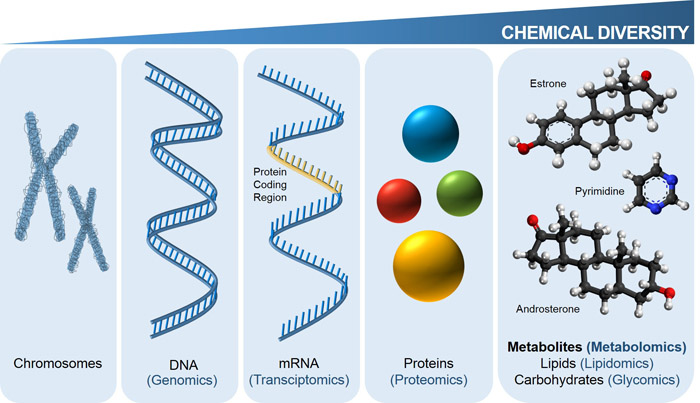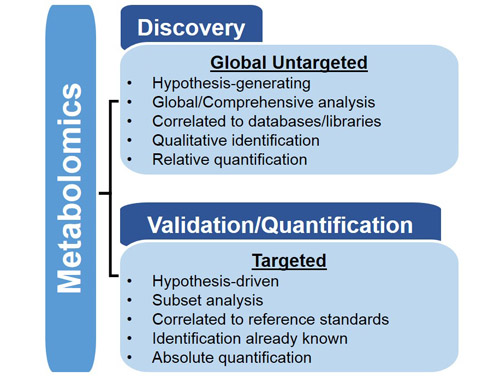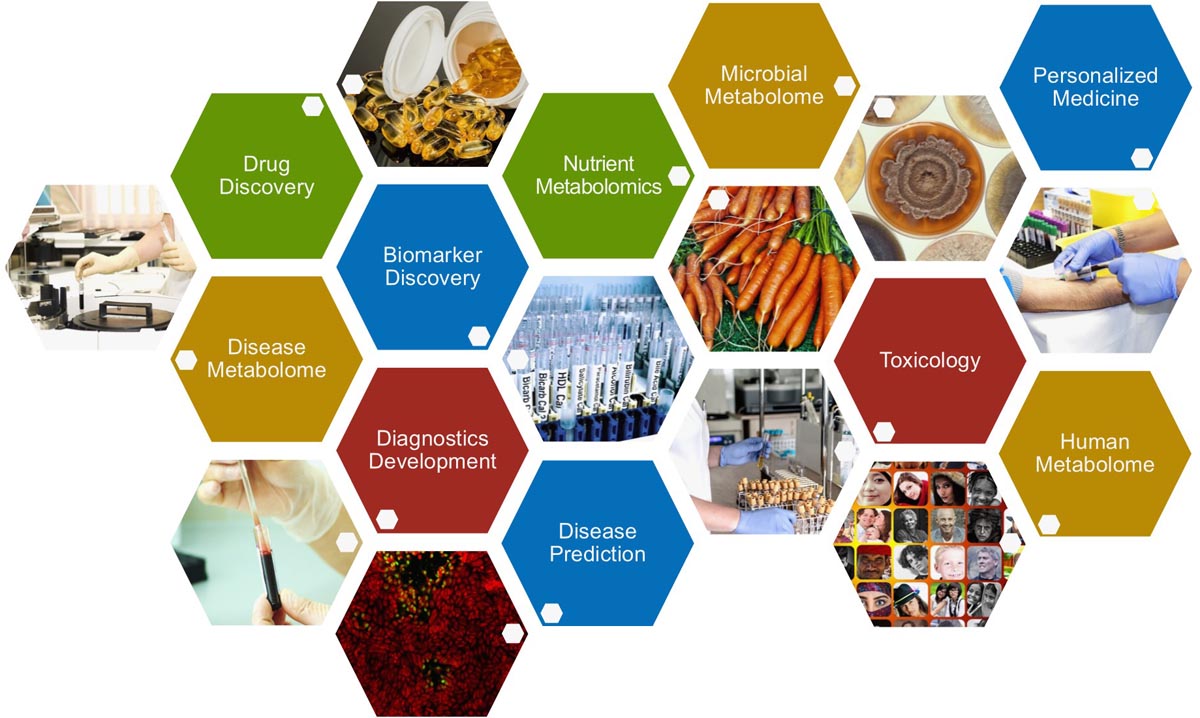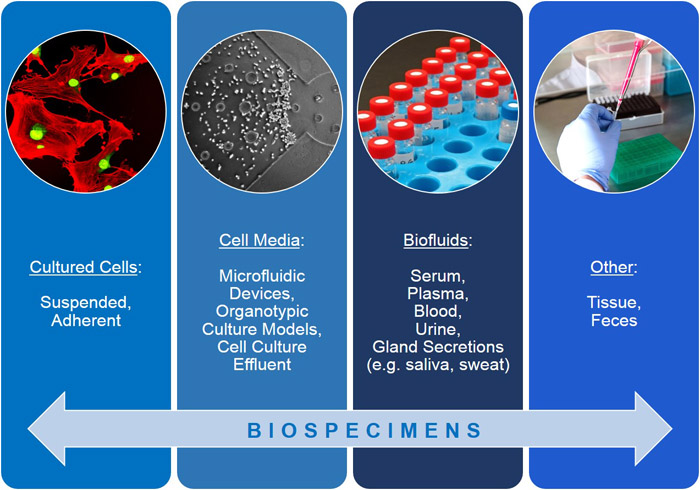What is metabolomics research?
Biological systems such as cell cultures, tissues, organs, and entire organisms produce, transform, and consume small molecules (< 1500 Da). These small molecules or metabolites perform functions or tasks necessary for cell growth, defense, inhibition, and stimulation. As a result, small molecular omics analysis is a powerful approach in discovering and understanding an organism's functions and responses. In these analyses, we typically observe 1) endogenous metabolites (produced by the organism itself; e.g. fatty acids, organic acids, sugars, vitamins) and 2) exogenous metabolites (external from the organism; e.g. drugs, environmental toxicants).
One goal of metabolomics-based analyses is to identify (global untargeted analysis) and quantify (targeted analysis) metabolites. As such the metabolomics community has already developed several small molecule-based databases of identified metabolite entries for several organisms (e.g. humans, lifestock, yeast), pathways, diseases, and drugs.






 Follow Us
Follow Us